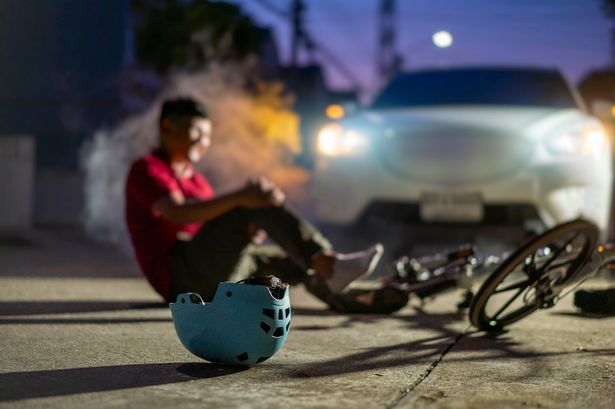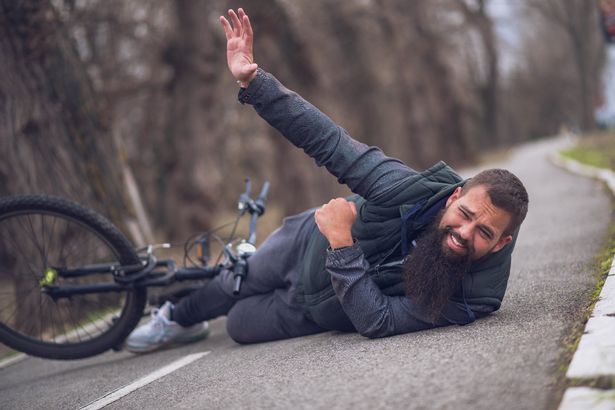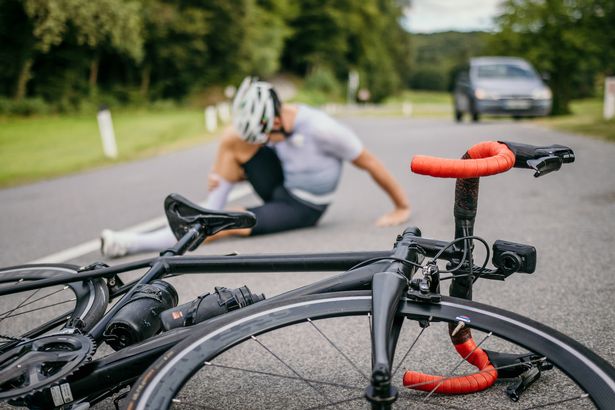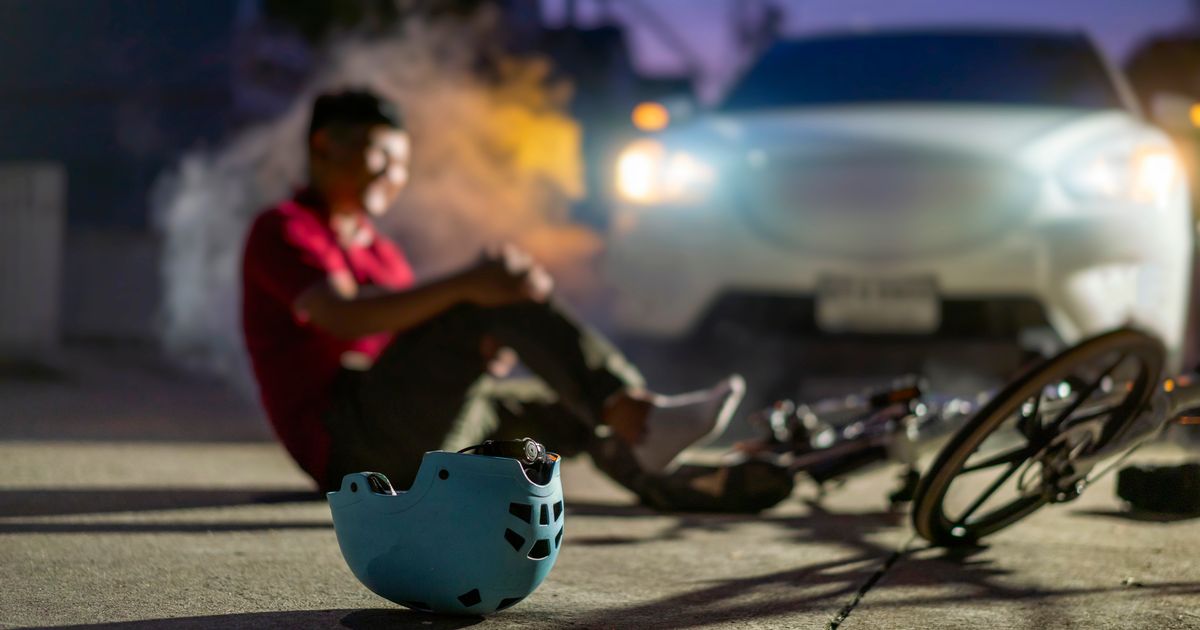Negligence isn’t just limited to crashes, and experts warn cyclists and drivers need to be fully aware Dozens of cycling accidents occur daily on UK roads(Image: Getty)
Dozens of cycling accidents occur daily on UK roads(Image: Getty)
With 80 people per day injured in cycling accidents, and two people per day sadly dying, legal experts at Thompsons Solicitors are calling for greater awareness of the legal rights and responsibilities shared by both drivers and cyclists. Over the summer months, more cyclists take to Britain’s roads, and Thompsons warns that lots of drivers are unaware of how the law applies in the event of an accident.
Cyclists are among the most vulnerable groups on the road, yet confusion still surrounds who is liable when things go wrong. Serious injuries often occur even without direct contact, for example, if a cyclist is forced to swerve due to a careless driver, is “doored” by a parked car occupant, or loses control following a close overtake.
Being “doored” generally refers to being struck by or colliding with an open car door while cycling or riding a motorcycle. It’s a common type of traffic that tends to happen because drivers or passengers fail to look for approaching traffic before opening their doors.
Sometimes, it happens because people open their doors suddenly and without warning. ‘Dooring’ accidents can result in a range of injuries, from minor cuts and bruises to serious fractures, head injuries, and even fatalities.
Many cyclists don’t realise they could be entitled to compensation even if the vehicle involved didn’t touch them. The legal experts want people to know that drivers must understand their legal obligations, and cyclists need to know what steps to take if they are injured through no fault of their own.
 Cyclists need to know what legal steps to take if they are injured(Image: Getty)Drivers often get
Cyclists need to know what legal steps to take if they are injured(Image: Getty)Drivers often get
Despite updates to the Highway Code, many drivers are still unaware of their legal obligations when it comes to sharing the road with cyclists. Being unaware of these rules is never a good excuse for breaking the code, and it could leave them liable if an accident occurs:
Motorists must allow a minimum of 1.5 metres when overtaking cyclists — and more if travelling at higher speeds.Cyclists are fully entitled to ride in the centre of their lane or two abreast when necessary for safety, even if it delays traffic.Drivers and passengers must check carefully before opening their door — under the Road Traffic Act, “dooring” a cyclist is a criminal offence, even if no vehicle was moving at the time.
Negligence isn’t just limited to crashes. If a cyclist is injured due to careless or unsafe behaviour, such as overtaking too closely or not checking mirrors, the driver may still be legally responsible, even without physical contact.
 Drivers must also be aware of their responsibilities to one of the UK’s ‘most vulnerable groups on the road'(Image: Getty)Four things every cyclist should do after a road incident
Drivers must also be aware of their responsibilities to one of the UK’s ‘most vulnerable groups on the road'(Image: Getty)Four things every cyclist should do after a road incident
Whether you’ve been directly struck or forced off the road due to someone else’s carelessness, there are vital steps every cyclist should take right away following an incident. According to Thompsons’ legal experts:
Move to a safe location and seek medical attention: It doesn’t matter how minor the injury may appear at first.Report the incident to police: This is especially important if another party is involved, or if you suspect negligence.Document everything: Include photos of the scene, road layout, damage to your bike or clothing, visible injuries, and anything that might support your account.Get contact details for any witnesses and the driver (if applicable): Check for nearby cameras, including helmet footage, which may provide essential evidence.
If the driver flees the scene or is uninsured, you can still make a claim through the Motor Insurers’ Bureau (MIB), which exists to protect victims of untraced or uninsured drivers. A spokesperson for Thompsons said: “Too often, cyclists write off incidents because they’re unsure of their rights or assume the process will be too complicated, but if someone else’s carelessness causes you harm, the law is on your side – and it’s worth speaking to a legal expert to understand your options.”

